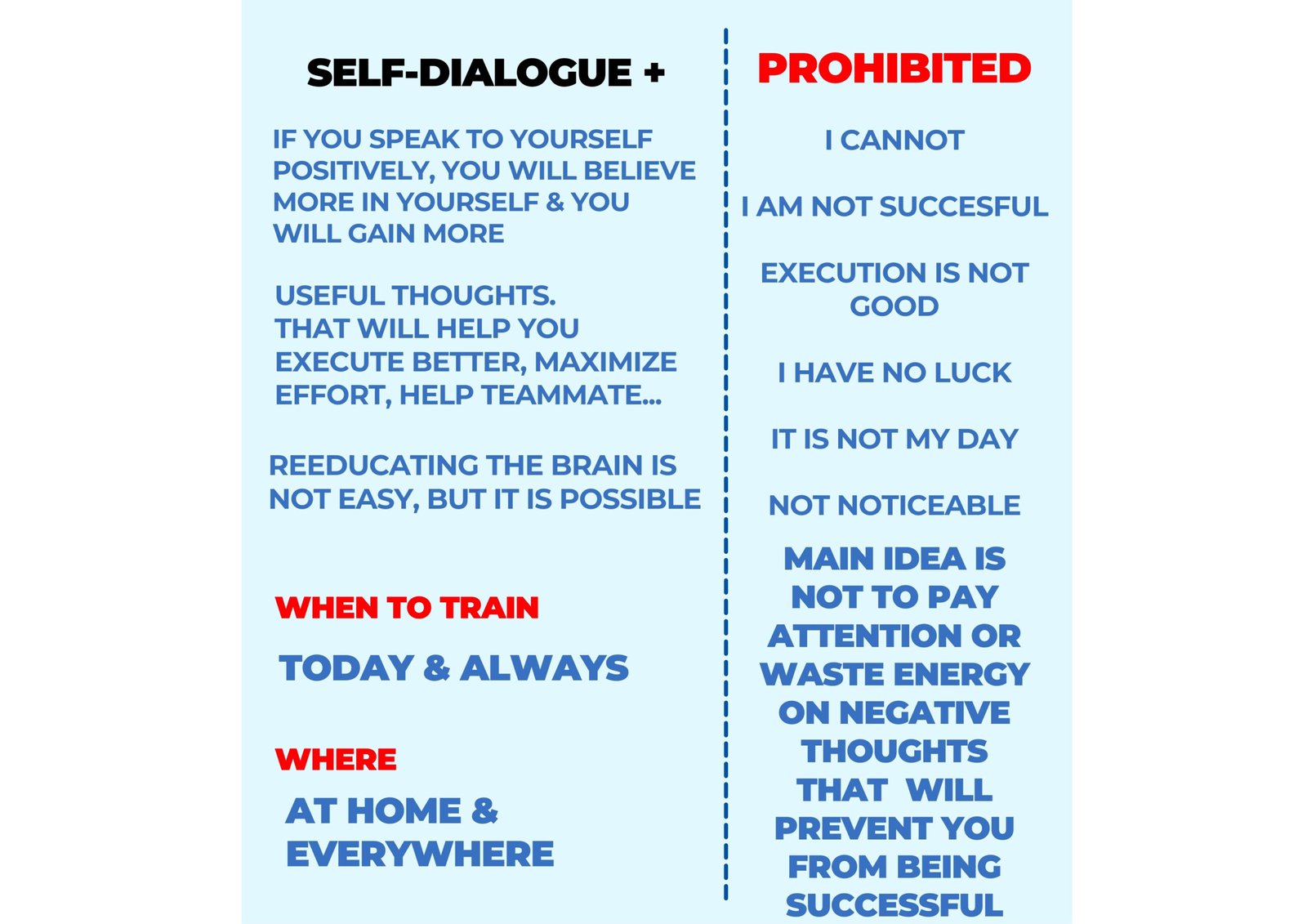3.5 Self-Dialogue
SELF-DIALOGUE
🧠 Self-Dialogue is a cognitive technique. The person you talk to the most in your life is yourself. And the usual thing is that you are much harder and demanding with yourself than with others. Faced with the same situation, surely your self-dialogue is very demanding, you will even say things to yourself that you would not say to a partner. The demand (self-demand) is very good and is necessary, but it has to be accompanied by being flexible and understandable if it does not turn out as you expect. The normal thing in life is failure. When you hit the field, what is certain is that you are going to fail at something. You need to learn to accept it and normalize it.
🧠 This technique has the objective of influencing your mental state and your behavior. It is not about talking to yourself in a positive way just for the sake of it and in every situation, even bordering on self-deception. It is about using credible phrases and, above all, useful and personalized, that you have been working on in training.
🧠 As we have seen in previous sections, the way you talk to yourself conditions your way of facing difficulties and determines decision-making. It is a determining factor in your performance, and it is necessary to work on it if you want to learn to use it to your advantage.
🧠It is a technique that can be self-applied in almost all situations, sometimes in conjunction with other techniques.
🧠 Off the pitch, in “conversations” to control your emotional state. For example, to reduce activation on a day that is difficult to sleep, or to redirect a moment in which the player identifies with a negative thought pattern.
🧠 On the field of play, to improve executions or during periods of pause.
There are different types of self-dialogue:
- 💬Self- Affirmations: To remember important aspects at key moments. For example: “What happened in the first part no longer matters; now, it only matters what I can do in this second part”; “They are a good team, but we have our strengths and if we take advantage of them we can have more possibilities”; “If I focus on what depends on me, I can improve my performance.”
- 💬Self-Instructions: Phrases that constitute specific “orders” about the action to be carried out. They must be given with energy, without a doubt. Trying to direct ourselves towards the action that you want to take is a reminder of the action to be taken. Self-instruction points the way forward. For example: “Take a deep breath before taking the penalty”.
- 💬Self- reinforcements: Of actions that have been done well. For example: a defender whose objective is to anticipate the striker before he receives it, each time he succeeds, he can say to himself “Well Done!” It is essential and, in addition, it allows you to build self-confidence.
This self-dialogue is important that it does not turn into repeating phrases indiscriminately. It must be associated with the specific variable you want to work on. If what you want is to reinforce self-confidence after a failure, the phrase must be related to that. Some examples:
-
- 💬To cushion the stress after a failure or adversity “calm down, you knew this could happen. Focus on…”
- 💬To strengthen motivation “the goal is close, but you have to stay focused”
- 💬To reduce the activation level “quiet, breathe”
- 💬To increase it “all games are important, take advantage of this opportunity”
- 💬To strengthen self-confidence “This has happened to you before and you were able to overcome it”
- 💬To focus attention “focus on what depends on you and what you have to do”

Source: own elaboration
